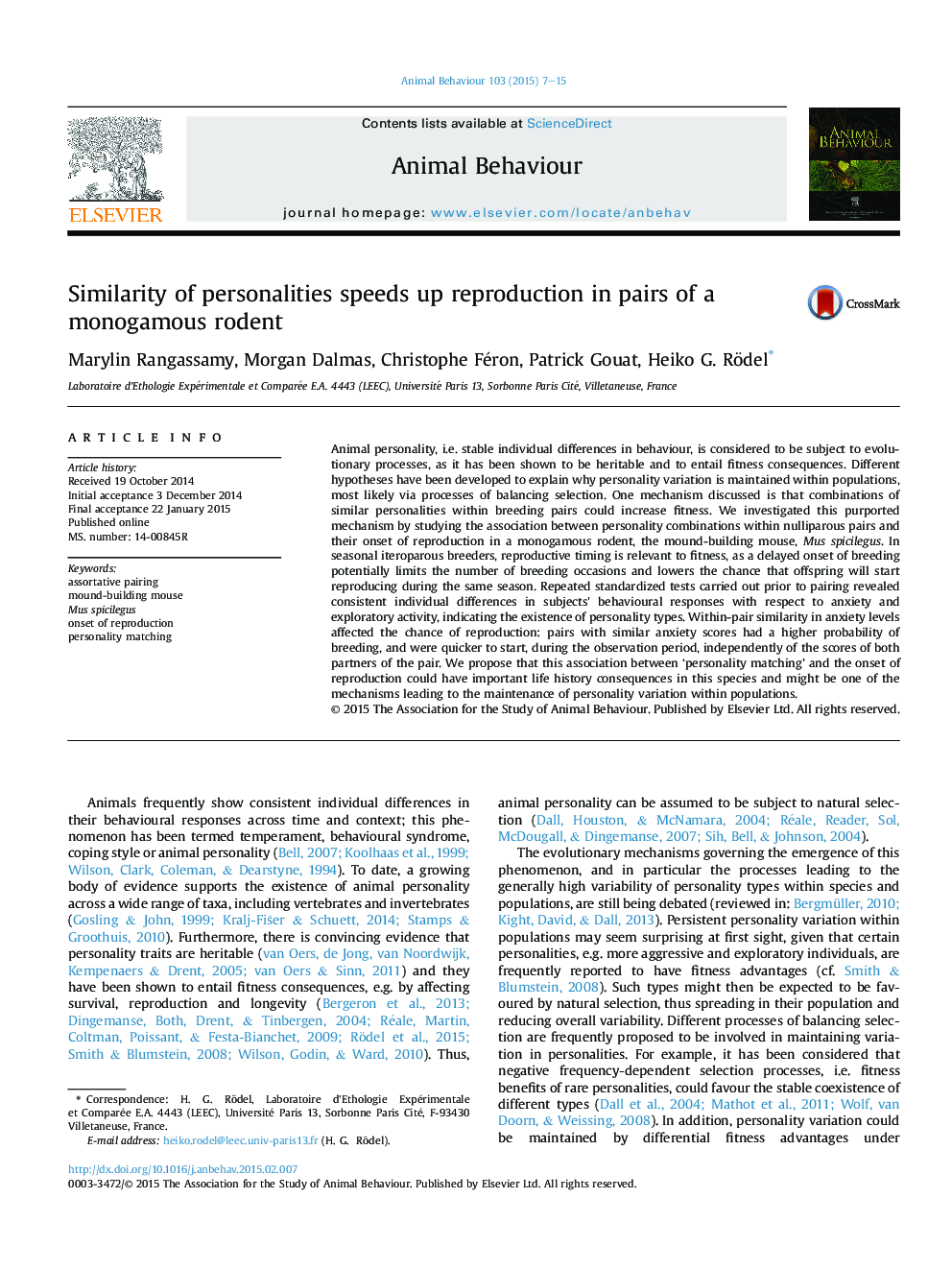| Article ID | Journal | Published Year | Pages | File Type |
|---|---|---|---|---|
| 8489892 | Animal Behaviour | 2015 | 9 Pages |
Abstract
Animal personality, i.e. stable individual differences in behaviour, is considered to be subject to evolutionary processes, as it has been shown to be heritable and to entail fitness consequences. Different hypotheses have been developed to explain why personality variation is maintained within populations, most likely via processes of balancing selection. One mechanism discussed is that combinations of similar personalities within breeding pairs could increase fitness. We investigated this purported mechanism by studying the association between personality combinations within nulliparous pairs and their onset of reproduction in a monogamous rodent, the mound-building mouse, Mus spicilegus. In seasonal iteroparous breeders, reproductive timing is relevant to fitness, as a delayed onset of breeding potentially limits the number of breeding occasions and lowers the chance that offspring will start reproducing during the same season. Repeated standardized tests carried out prior to pairing revealed consistent individual differences in subjects' behavioural responses with respect to anxiety and exploratory activity, indicating the existence of personality types. Within-pair similarity in anxiety levels affected the chance of reproduction: pairs with similar anxiety scores had a higher probability of breeding, and were quicker to start, during the observation period, independently of the scores of both partners of the pair. We propose that this association between 'personality matching' and the onset of reproduction could have important life history consequences in this species and might be one of the mechanisms leading to the maintenance of personality variation within populations.
Keywords
Related Topics
Life Sciences
Agricultural and Biological Sciences
Animal Science and Zoology
Authors
Marylin Rangassamy, Morgan Dalmas, Christophe Féron, Patrick Gouat, Heiko G. Rödel,
